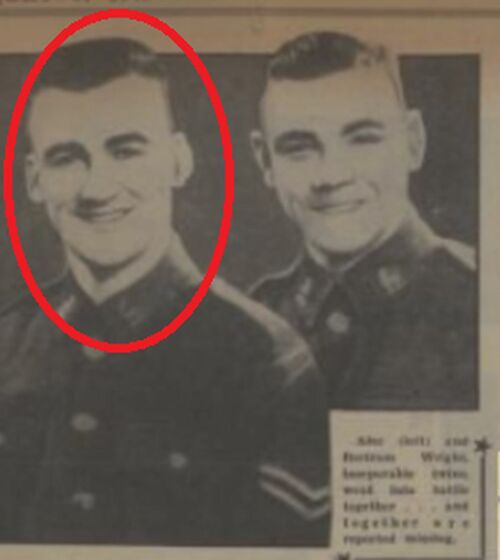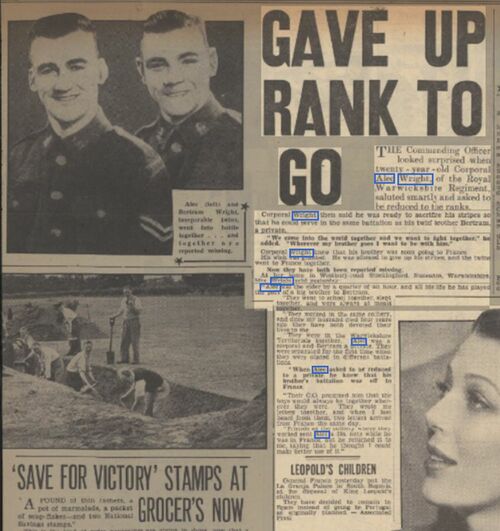Auction: 23112 - Orders, Decorations and Medals - e-Auction
Lot: 617
The campaign group of three awarded to Private A. J. Wright, 7th Battalion, Royal Warwickshire Regiment
Wright gave up his Corporal's 'stripes' so that he could serve shoulder-to-shoulder with his twin brother as part of the British Expeditionary Force; the pair were captured at Dunkirk and held at Lamsdorf before having to endure the privations of 'The Long March' in 1945
1939-1945 Star; War Medal 1939-45; Efficiency Medal, G.VI.R., Territorial (5109378 Pte. A. J. Wright. Warwick), very fine (3)
Alec Wright was a pre-war Territorial from Nuneaton, Warwickshire. Both he and twin brother served with the Regiment but in different Battalions. Alec on discovering that his twin brother, Bertram, was about to leave with the B.E.F. gave up his rank to join his brother in the 1/7th Battalion.
The Battalion departed for France in early 1940 to join the rest of the Force. On 16 May with the Allied front crumbling rapidly they were ordered back. With the Germans advancing in a pincer movement there was a danger that the Force would be cut off. 143 Brigade (including the 1/7th and 8th Battalion) was sent to defend the Ypres-Comines canal zone. The lives of many thousands rested on this depleted force. The troops withstood the assault of three German Divisions on 27-28 May 1940. This saved 2nd Corps and did much to aid the successful withdrawal of the entire B.E.F.
Just one night made a big difference to the number of men that reached England safely (midnight 28th May 25,000 and 29th May a further 47,300).
Wright and his twin brother were both taken Prisoner of War and held at the infamous Stalag 344 near the village of Lamsdorf. By 7 January 1945 Wright and his fellow captives, who had been held in cramped conditions with very little to eat for nearly five years, were issued with orders to evacuate the camps and to forcibly march hundreds of miles west into central German territory.
Tens of thousands of men were involved in these events, thousands of whom perished. Most marched many hundreds of miles, sometimes 20 miles a day, before being liberated by allied forces in April and May of 1945. Many of the dead succumbed to starvation, exposure, and disease. Some were shot by guards for attempting escape or simply being unable to continue.
Much has been written and documented about this horrific march. Wright survived and arrived in Germany on 10 April 1945 where he was incarcerated until eventually liberated.
Subject to 20% VAT on Buyer’s Premium. For more information please view Terms and Conditions for Buyers.
Sold for
£220
Starting price
£100









